Six research-based strategies to help you overcome barriers to success
Get Started for FREE
Sign up with Facebook Sign up with X
I don't have a Facebook or a X account

 Your new post is loading... Your new post is loading...
 Your new post is loading... Your new post is loading...

Howard Rheingold's curator insight,
July 17, 2013 7:00 PM
An excellent short overview of the benefits of conscious metacognitive exercise -- the attentional side of infotention. There's a lot of touchy-feely and neurobollocks about metacognition and meditation lately. 
David McGavock's curator insight,
July 19, 2013 5:54 PM
"when people’s minds were wandering, they tended to be less happy, presumably because our thoughts often tend towards negative rumination or stress." That is presuming a lot since meditation affects our minds on so many levels. Familiarity with our thought process helps us to realize that we are not solid and that change/flux is the norm. It helps us realize that we have some control; albeit paradoxical control. Meditation slows our reactivity to people events and helps us appreciate our lives and other people. That's what I've experienced anyway.

Annette Schmeling's curator insight,
June 20, 2013 8:46 AM
Greenberg provides basic concepts of mindfulness. A mindfulness practice fosters a deeper connection to self and grounds your very being in the present moment. In the Christian tradition centering prayer opens oneself to the presence of God within and deeply into the experience of the sacrament of the present moment. Learning to say 'Yes!' is an invitation to living beyond words, emotions, and thoughts and leading from within. 
Peter L Wiltshire's curator insight,
August 22, 2013 8:23 AM
Mindfulness is a way of being present to yourself and the present moment. It is also a process of becoming your true self.

ozziegontang's curator insight,
June 13, 2013 1:23 AM
Looks like we have moved from pop-psychology to pop-neuroscience. The suggestion is that it might serve us better to learn about neuroscience by "reading the blogs of the Neurocritic, Neuroskeptic and Mind Hacks. ...Those are actual practicing neuroscientists who are experts in their respective fields."

elysha lenkin's curator insight,
March 15, 2014 8:33 AM
Getting #mindful in the bedroom makes a major difference |

Maggie Rouman's curator insight,
July 16, 2013 2:00 PM
It is important to understand how our brains and bodies react to stress. This article also includes an infographic. 
Shadow Quill 's curator insight,
July 31, 2013 11:11 PM
The evolution of the fight or flight response is no longer as adaptive as it once was

ozziegontang's curator insight,
June 20, 2013 7:49 PM
What Ira shares is mirrored in understanding communication and communicating with understanding. It's not what we know that gets us in trouble. It's what we know that just ain't so that does.

ozziegontang's curator insight,
June 15, 2013 12:20 PM
Some of my thoughts after reading Steve Robertson's Mindfulness & Monkey Mind and how Lee's thoughts reflect that same Mindfulness when it comes to who is responsible in communication. My message in any medium is not a message if it is not accessed and interpreted by some person. My message is not a message if the receiver doesn't take my message into account. My message is not the message I intended if the other person interprets it other than the way I intended. So the learning lesson for me, if I am able to hear is: The one who interprets my message is always the one who is in control. So it is my responsibility as the receiver of the communication for getting the message the person speaking to me intended. My communication and all communication have consequences. Those consequences involve me and the other(s) who hear my communication.Those consequences are independent of intentions (mine or theirs, communication skills (mind or theirs) or whatever is going on in life (mine or theirs). This brings us back to my blog and the quotes from Lee on the metaphor of communication being like a virus. The Kalama Sutra said the same thing over 2500 years ago.

ozziegontang's curator insight,
June 17, 2013 11:06 AM
A short question and answer with Abigail Marsh by Robin Stevens Payes on some the research behind and an understanding of how much and how little we know about Empathy. She shares: "Having compassion for other people goes away when you’re overly anxious. So learning to regulate your emotions is critical. We know that is particularly difficult during adolescence." This is what the UCSD Center for Mindfulness Conference in February: Bridgin the Hearts & Minds of Youth: Mindfulness in Clinical Practice, Education and Research. There was a wonderful session with Jon and Myla Kabat-Zinn on Mindful Parenting: Nurturing our Children, Growing Ourselves.

ozziegontang's curator insight,
May 18, 2013 9:57 AM
http://www.youtube.com/watch?v=GOdnlVV_5Co
Lee Thayer's thoughts reflect that: Leaders are virtuoso question-askers because they care and use their questions to open themselves and others to new perspectives, alternatives and insights. Mindfulness in this role of leader influences others because it creates openness to what is possible. I am back to that statement that my daughters were raised on: If you want to know the future create it. We know that fear shuts down creativity and innovation. Being awake, aware and mindful allows me to be present and live my life intentionally and open to new possibilities. We are back to the foundation of Mindfulness: Practice. Gratitude, appreciation and being in the moment allows me to change my state of mind; body, thoughts, and emotions. At any moment what I do have is: Choice. Mindful and being present are a breath away. It is and will always be about: practice. |













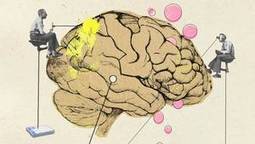


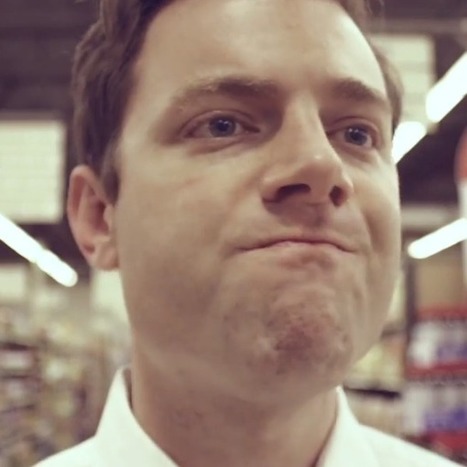
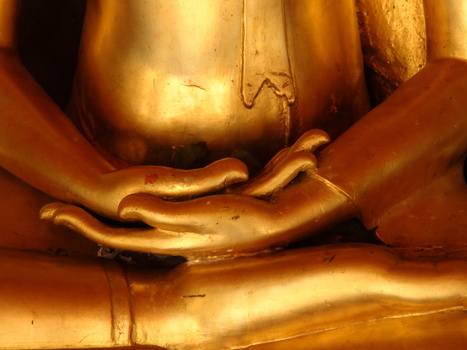

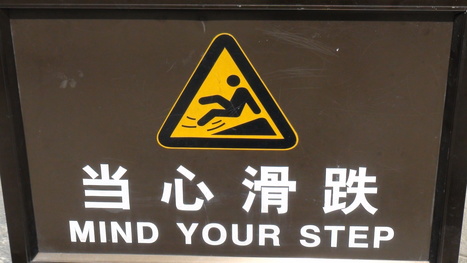
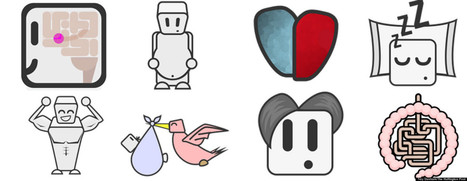
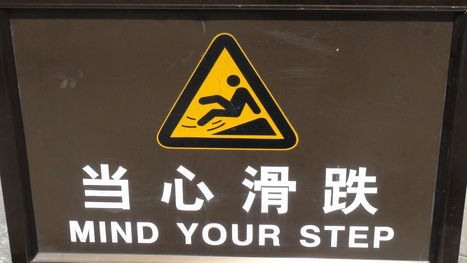
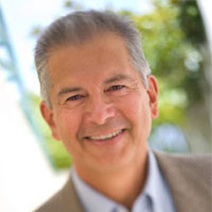








Melanie has some wonderful articles and blog posts to share on her The Mindful Self-Express . This one: "What Truly Success People
Don't Tell You" is one.
The question is: Are what you are looking at barriers or stepping stones?
Like Mindfulness, Life is a practice. It is a practice of right thinking. With right thinking I become who I am. From who I am I do what I do. What I do creates my habits and then my habits continue to create me. It all starts with the way I think. Get my thinking right and I can get my life right.
Or as Diogenes said: "One original thought is worth a thousand mindless quotings."